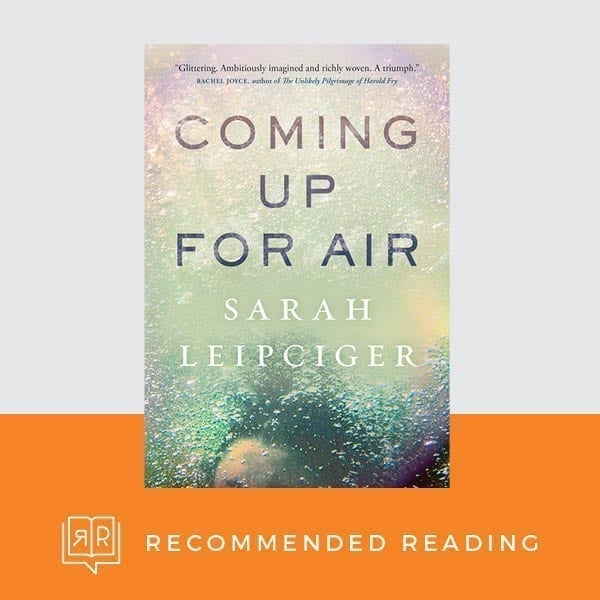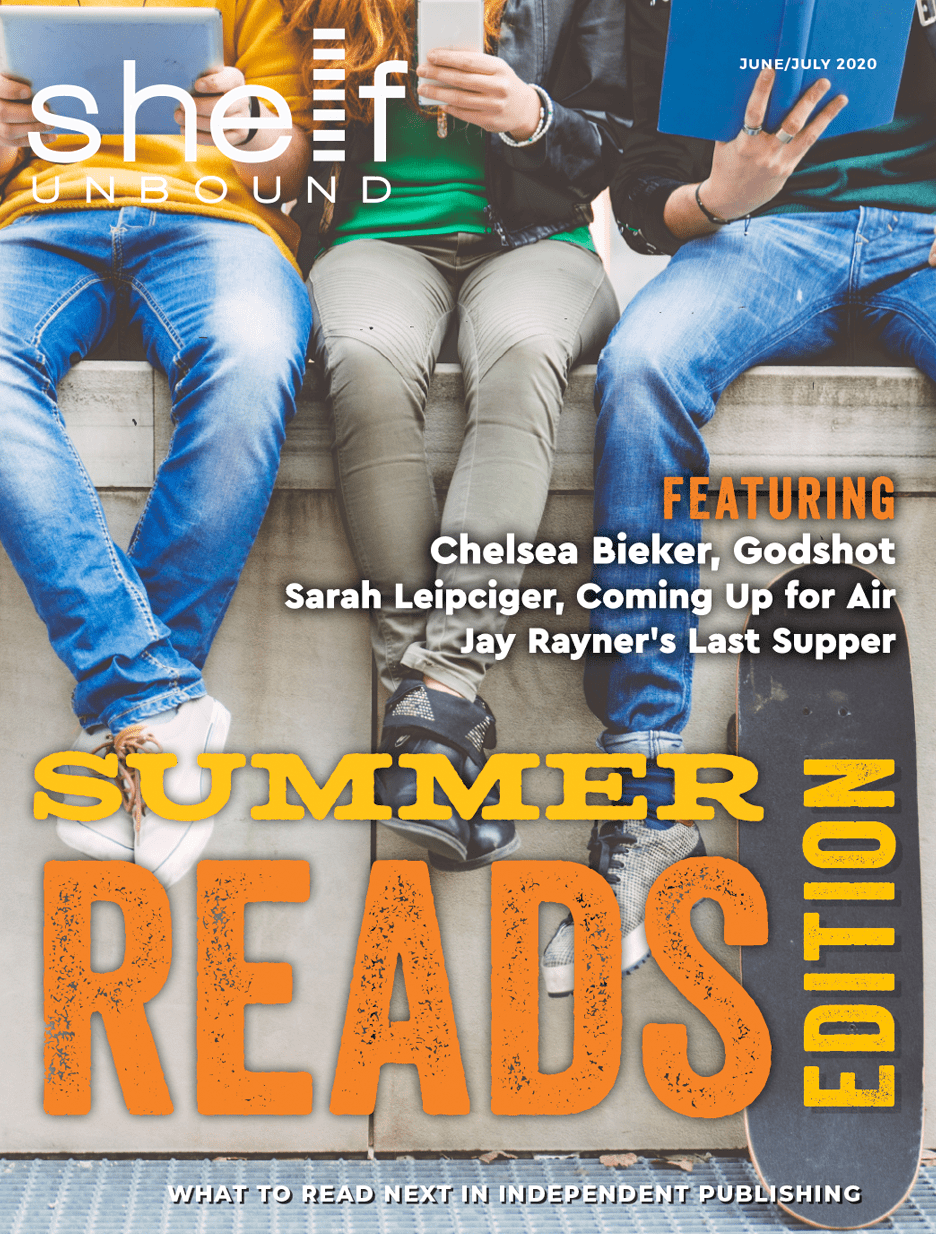[cm_page_title title=”Sarah Leipciger, Coming Up for Air” subtitle=” Interview”]
 In her sophomore novel, Sarah Leipciger channels the voices of three disparate individuals connected through time and space: a heartbroken young woman takes a final breath before plunging into the River Seine in 1890s Paris; a toymaker channels his grief into invention in 1950s Norway; and, in present-day Canada, a journalist battles a terrible disease that threatens to drown her from within. Taking inspiration from the mythology surrounding “L’inconnue de la Seine” (the unknown woman of the Seine), Leipciger gives life to the anonymous and compelling woman whose mysterious story has compelled creators for decades the astonishing happenstance that led to this beguiling face becoming the visage of artificial resuscitation dummies in the 1960s through today.
In her sophomore novel, Sarah Leipciger channels the voices of three disparate individuals connected through time and space: a heartbroken young woman takes a final breath before plunging into the River Seine in 1890s Paris; a toymaker channels his grief into invention in 1950s Norway; and, in present-day Canada, a journalist battles a terrible disease that threatens to drown her from within. Taking inspiration from the mythology surrounding “L’inconnue de la Seine” (the unknown woman of the Seine), Leipciger gives life to the anonymous and compelling woman whose mysterious story has compelled creators for decades the astonishing happenstance that led to this beguiling face becoming the visage of artificial resuscitation dummies in the 1960s through today.
Leipciger spoke with Shelf Unbound about her creating interconnected narratives, writing about Canada, and teaching creative writing.
From where did the premise for this new novel, Coming Up for Air, begin?
SL: I heard about the story of “L’inconnue” on an episode of the podcast Radiolab a year or two before my first novel was published. I thought, I can’t believe this isn’t a novel yet! thought about it for a year or maybe even two years, before I started writing it.
What does your writing process look like, especially when you’re marrying shifts in perspective and contending with a novel being based on true events? Where do you start?
SL: With this book, I started off with months of research. You’ve got to do the work to write a passable representation of this time period in Paris because it’s so well known and important. The research started to inform the Paris and “L’inconnue” bits and it became quite complicated. I knew I wanted a three-part structure because I like that aesthetic, but I had to make sure that each of the three parts moved in tandem and made sense. I ended up becoming visual with it, drawing lots of diagrams on big pieces of paper on the floor. Of course, the kids were drawing on them and trying to cut them apart, but it was easier for me.
Are you a person who usually plots and plans your writing?
SL: I’m not much of a plotter. I like to just write a whole book from start to finish, then go back to edit and rewrite. By the time I’ve finished a book, it’s been a year or more since I’ve looked at the beginning, so there’s tons of stuff that’s no longer relevant, directions I have to change, and character development that needs to be done. I’m a bit messy. I think some people would look at it and think, “what the hell?” but, to me, it feels organic.
Do you work closely with your editor or agent as your working through this part of your writing process?
SL: I have two writers that I work with, both friends who I’ve known for about 10 years now. We get together maybe twice a year, but we’re in contact pretty much every day. Whenever I have big problems, I go to them.
My agent used to be an editor, so when I have a manuscript that’s ready, she reads it, then comes back with general, overarching suggestions. With both books she’s come with one or two pivotal suggestions that I’ve used in the final books.
Then it goes to the editors and, for both books, I’ve had two. With The Mountains Can Wait, I had two publishers, but one contract. Those two editors bought the book as a team, so they worked as a team. With Coming up for Air, I have two publishers who didn’t buy the book as a team, but they still worked quite amicably together.
Do you have to worry about Britishisms in your books published in the US and Canada and vice versa?
SL: The publishers have house rules, so I leave that to them, but you bring up an interesting point because when I met my editor, Michelle, she noticed quite a few things in Coming Up for Aire that were “British,” even in the Canadian bits. It was fascinating because I feel very Canadian and Canada is home, but gosh, I’ve forgotten things having lived in the UK for such a long time.
How has traveling and living outside of Canada influenced your writing?
SL: When I was in my early 20s, I couldn’t wait to leave Canada. I didn’t intend to leave for good, but I just couldn’t wait to go everywhere and to see and experience it all. I’m so glad that I did all that, but, interestingly, having lived away for so long, what interests me more than anything is Canada and home. I want to inhabit that space and recreate that feeling of home to share it. If I hadn’t left Canada I wouldn’t be able to write about it in the way that I do; I wouldn’t be as interested or have this perspective.
Can you share a bit about teaching creative writing to men in prison? How does this work affect your storytelling?
SL: I’ve been teaching creative writing in prisons since 2003, but I still love doing it because the students you get are all sorts, people of all ages, educational backgrounds, and socio-economic backgrounds. Of all the students I have had over the years, I don’t any of them had ever been taught creative writing or had the opportunity to do much writing. It’s fun to start at the beginning with guys who are so excited to write, who aren’t trying to be prolific; it’s pure and real and natural. When they’re in a classroom, they feel more human than in some other parts of their day. It’s really an honor to spend that time with people.
I spend so much time alone, writing books, so it’s great to interact with different people. I have new students every couple weeks because there is a lot of movement through this particular prison. And, because its London prison, there are people from all over the world. It’s never boring.
Has the pandemic affected your writing and creativity?
SL: I’m having a hard time. There are a lot of distractions: all the worry and not knowing and the fact that we just don’t have any answers. No one knows how this will end and I’m finding not being able to settle hard. I started writing my third book months ago now, but I haven’t been able to write anything more since this began. It feels irrelevant, but I don’t want it to be, it’s a book that I care about. I just can’t put my head there right now, so it’s on hold for the moment.
Which books or authors have informed your approach to writing, language, and storytelling?
SL: I always go back to Margaret Laurence and Alison Row, as early inspiration. I call Margaret Laurence “Canada’s Other Margaret,” she’s amazing but isn’t that well known outside of Canada. I’ve known that I wanted to be a writer since I was really young, and those two writers really stick out for me as the authors of books that showed me how to tell a story.
Cormac McCarthy is one of my favorite writers, but I don’t think I write like him; nobody but Cormac McCarthy writes like Cormac McCarthy.
And I’ve loved Deborah Levy these last few years. She’s a British novelist and essayist that is an absolute genius and inspires me to work harder.

[cm_page_title title=”Continue Reading” subtitle=” Shelf Unbound”]
Article originally Published in the June/July 2020 Issue Summer Reads Edition.
